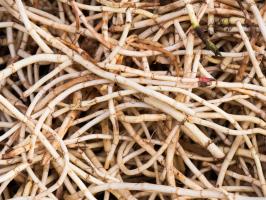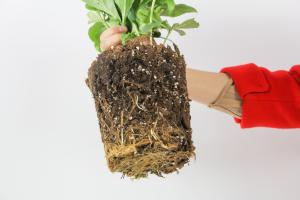Introduction
Keeping indoor plants is a popular method of enhancing the aesthetic value of our home decor. Interestingly, studies have shown that houseplants not only beautify our indoors but also boost our overall well-being, such as improving air quality by absorbing toxins and increasing humidity. However, as pet owners, it's crucial to know if certain indoor plants pose any health risks to our furry friends. The purpose of this article is to explore if pot plants are toxic to dogs.
Common Pot Plants Toxic to Dogs
It's essential to keep in mind that not all houseplants are poisonous to dogs; however, some common pot plants can be harmful to our furry friends. If ingested, some plants can cause mild stomach upsets, while others can cause severe reactions that could result in death. Some common pot plants that are toxic to dogs include:
Aloe Vera
Bird of Paradise
Chinese Evergreen
Dumb Cane
Easter Lily
English Ivy
Ficus
Jade Plant
Poinsettia
Pothos
Rubber Plant
Sago Palm
Tulips
Symptoms of Pot Plant Poisoning in Dogs
It's essential to recognize if your dog has ingested a poisonous plant. Symptoms may vary depending on the type of plant and the amount your dog has eaten. However, some general symptoms pet owners should be aware of include:
Vomiting
Diarrhea
Loss of appetite
Lethargy
Excessive drooling
Difficulty breathing
Seizures
Coma
Prevention
Prevention is key in keeping our pets safe from pot plant poisoning. One way to prevent accidental ingestion is to keep poisonous plants out of reach or choose pet-friendly plants instead. Placing plants on high shelves, tables, or suspended from the ceiling can make it hard for the dog to reach them. When walking your dog outside, ensure that they are kept on a leash and monitored as they may consume plants grown in your garden. Additionally, it's crucial to seek veterinary attention if you suspect that your dog has ingested a poisonous plant immediately.
Conclusion
Are pot plants toxic to dogs? Yes, some common pot plants can be harmful and pose fatal risks to our furry friends. As pet owners, it's necessary to be aware of the possible consequences of keeping poisonous plants indoors and to put preventative measures in place. By choosing pet-friendly plants, keeping plants out of reach, and seeking veterinary care if your dog has ingested a toxic plant, you could save your dog's life.

 how many times do yo...
how many times do yo... how many planted tre...
how many planted tre... how many pine trees ...
how many pine trees ... how many pecan trees...
how many pecan trees... how many plants comp...
how many plants comp... how many plants can ...
how many plants can ... how many plants and ...
how many plants and ... how many pepper plan...
how many pepper plan...

































